Durham's Parrish Street: A Legacy of Black Wall Street
“Three men began the economic building of black Durham: a minister with college training, a physician with professional training, and a barber who saved his money”- W.E.B. DuBois
This story is a part of our African American Heritage Guide Project, a printed guide and collection of stories about Durham's Black history, culture, community and entrepreneurship created by Black writers, poets and artists. Find more stories and information about the guide.
Known as one of the epicenters of Black Wall Street, Durham's Parrish Street holds a storied legacy, echoing the entrepreneurial spirit, achievements and struggles of its pioneering residents. Like other Black business districts across the country, such as the all-Black Greenwood neighborhood of Tulsa, Oklahoma or Alabama’s The Fourth Avenue District, Parrish Street once symbolized the pinnacle of African American economic success and cultural vitality.
Home to North Carolina Mutual, the first Black-owned insurance company in the state, Black entrepreneurs had also launched a mattress manufacturer, a cigar factory and a bank, among dozens of other businesses. Despite the segregation and discrimination faced by so many in the early 1900s, African Americans in Durham enjoyed the highest per capita income, and the highest rate of home ownership, in the country.

Take in the history on downtown Durham's Parrish Street. Photo: Jonathan Lee / Discover Durham
Black Wall Street's Founders
At the heart of the historic legacy of Durham’s Black Wall Street are the visionary entrepreneurs who laid the foundation for Durham's prosperity. These trailblazers, including John Merrick, Charles Spaulding and Aaron McDuffie Moore, known as the “Triumvirate,” defied the constraints of racial segregation and discrimination to establish thriving enterprises.
Through sheer determination and ingenuity, they created a vibrant ecosystem of businesses that catered to the needs of Durham's Black community and beyond. Together, their efforts resulted in W.E.B. Du Bois citing Durham’s Black Wall Street as a leading example of Black economic progress.
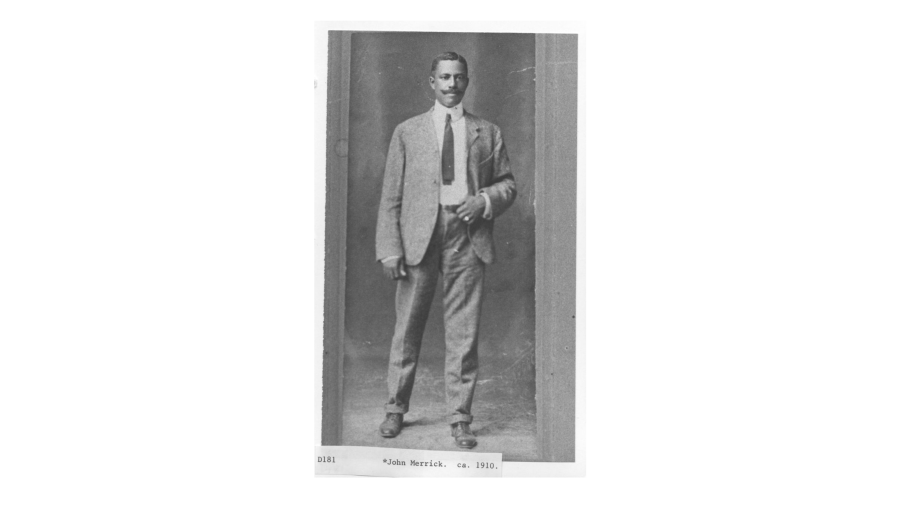
John Merrick began his career in business as a barbershop owner. Photo: Durham County Library Historical Photo Collection
NC Mutual Life Insurance Company
Central to the economic landscape of Black Wall Street was the NC Mutual Life Insurance Company. Founded in 1898 by John Merrick, a formerly enslaved person, and his colleagues, the company, which was originally headquartered on Parrish Street, served as a cornerstone of financial empowerment. NC Mutual provided small life insurance policies that afforded Black families proper burial services at a time when life insurance was unattainable for most African Americans. They also provided investment opportunities and small business loans. The significance of NC Mutual extends beyond its role as a financial institution. It symbolizes the collective spirit of resilience and community that defined Durham's Black Wall Street.
Despite being forced to liquidate the company in 2022, the NC Mutual National Historic Landmark stands as a testament to the enduring legacy of Black Wall Street. The historic building currently houses Provident1898, a majority Black-owned, Black-led coworking space dedicated to supporting entrepreneurs, change-makers and creatives. The coworking spaces’ name is a nod to the iconic company that inspired them. Within the space's kitchen, a neon-lit historic Royal Ice Cream sign commemorates the history of Black Wall Street. Although the national civil rights movement was initiated by the Greensboro sit-ins in 1960, it's important to note that North Carolina had prior protests.
In 1957, Rev. Douglas Moore and six students entered the Royal Ice Cream parlor and requested service while sitting in the whites-only area. The parlor owner refused to serve the students, and Moore and the students were arrested for trespassing. The event would become a major milestone in the Civil Rights Movement. The inclusion of the Royal Ice Cream sign is a reminder of the resilience of Durham’s past African American leaders and businessmen who helped to shape the city’s Black Wall Street.
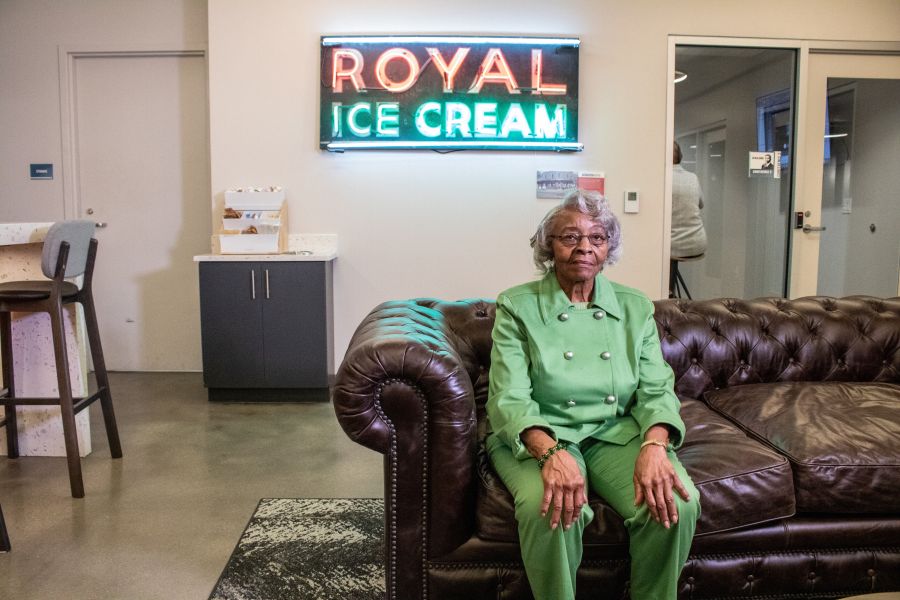
Virginia Williams, one of the students who participated in the Royal Ice Cream sit-in, sits in front of the original sign at Provident1898. Photo: Discover Durham
Mechanics and Farmers Bank
In 1907, in the same building as the North Carolina Mutual and Provident Association's headquarters, John Merrick, Charles C. Spaulding and Aaron McDuffie Moore, were joined by original charter members Richard Fitzgerald, William G. Pearson, J.C. Scarborough, J. A. Dodson, J. R. Hawkins, James E. Shepard, G. W. Stephens and Stanford L. Warren to establish Mechanics and Farmers Bank, one of the earliest African American-owned banks in the country. Its founding was a response to the systemic discrimination faced by Black individuals who were often denied access to financial services by traditional banks. M&F Bank aimed to provide financial empowerment and support economic independence within the Black community.
The bank offered savings and loan services, allowing Black individuals and entrepreneurs to access capital for business ventures, homeownership and personal investments. M&F is the second oldest Black bank in the US, having survived the Great Depression without closing. The financial institution is still thriving today, celebrating more than 115 years. In 2015, the bank was rebranded as M&F Bank, and in 2020, the Historic Parrish Street Branch underwent renovations. With $370 million in assets as of March 31, 2022, the company operates in five major cities in North Carolina.
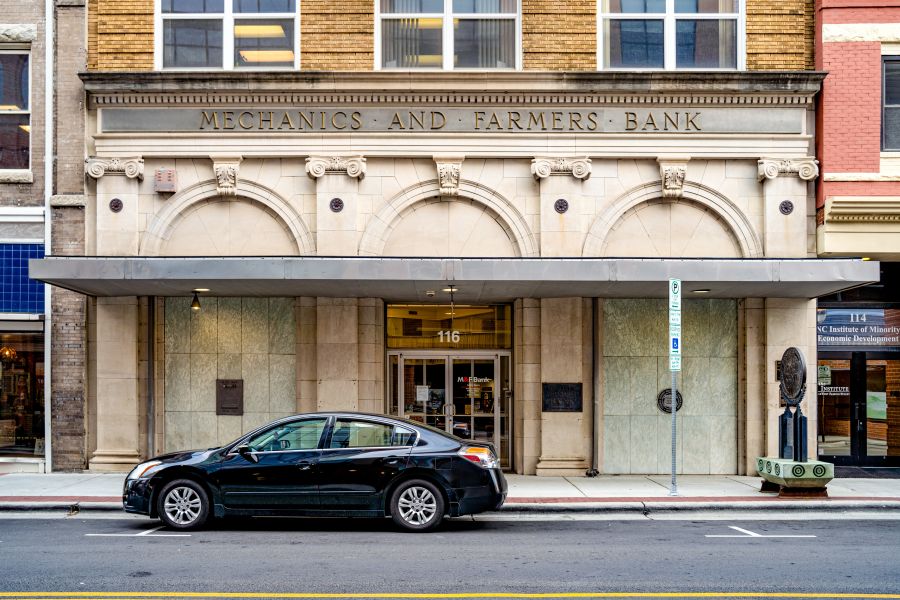
The original Mechanics and Farmers bank building still stands today on Parrish Street. Photo: Discover Durham
Parrish Street Historic Markers
Although Parrish Street itself serves as a physical marker of Durham's journey from the height of Black Wall Street to the disruption caused by urban renewal and the development of Highway 147, today, there are multiple historical markers within walking distance that preserve the history and stories of Black Wall Street. Located at the corner of Parrish and N. Mangum Street sits Black Wall Street Gardens, a small green space that was dedicated by the City of Durham in 2013.
The pedestrian-friendly gathering space features two pieces of public art designed by Durham-based artists Stephen Hayes (The Prism, 2021) and David Wilson (The Book Tree, 2021). Hayes’ work “shines a light on Black Wall Street’s unsung heroes – particularly the women who helped establish Black Wall Street as the hub for business and financial services” whereas Wilson’s sculpture was inspired by “the history of Black Wall Street in Durham, North Carolina and Yoruba sculpture.” Across Parrish Street, a previously vacant lot has been transformed into an informal public space affectionately known as Chicken Bone Park.
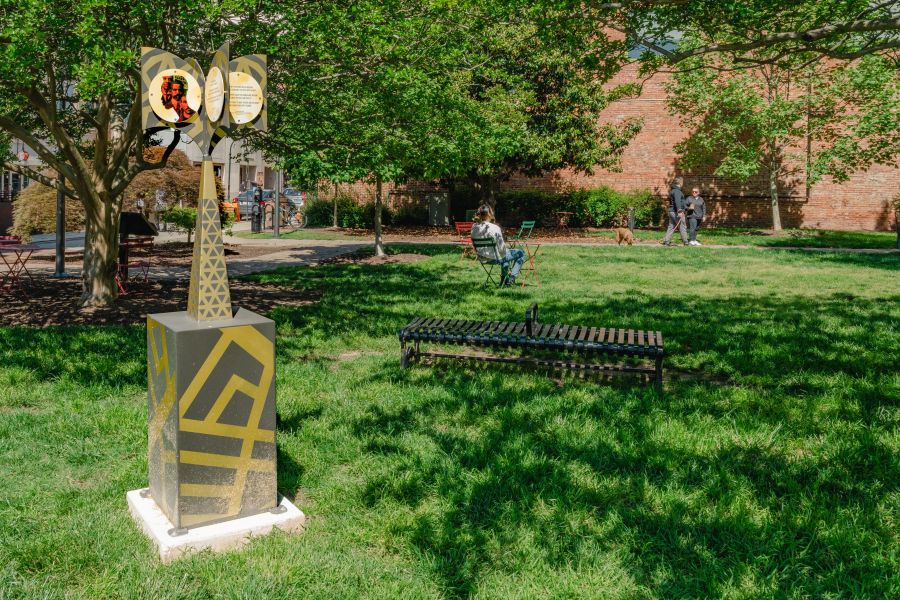
See the art installations at Black Wall Street Gardens. Photo: Discover Durham
Black-Owned Businesses on Parrish Street Today
Today, Parrish Street is home to three Black-owned businesses. Mechanics & Farmers Bank continues to operate from the historic North Carolina Mutual Building, holding the distinction of being North Carolina's oldest Black-owned bank at 116 years old. Two doors down is Ella West Gallery, North Carolina’s only Black female-founded fine art gallery and the newest Black-owned business on Parrish Street. The gallery holds space in a building previously housing the printing presses for The Durham Reformer, a 1920s-era Black newspaper that was supported by Mechanics & Farmers Bank.
Ella West is “dedicated to diverse, underrepresented artists from around the world who are committed to pushing the boundaries of art.” Their debut exhibit in 2023 was appropriately titled: “Return to Parrish Street: A Dream Realized.” On the back side of Ella West sits Kompleks Creative, Inc., a Black-owned creative agency. As Durham continues to evolve and grow, the legacy of Parrish Street and Black Wall Street remains integral to its identity. Through preserving and celebrating this rich history, Durham honors the legacy of those who dared to dream and build a better future for themselves and their community.
More Stories from the African American Heritage Guide
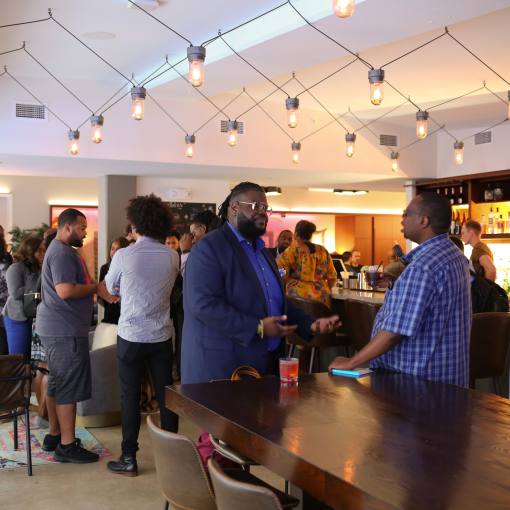
Beyond Black Wall Street: Durham’s Business Legacy Beyond Black Wall Street: A journey of resilience, creativity and innovation rooted in the history and promise of Black entrepreneurship and ownership in Durham. Learn More
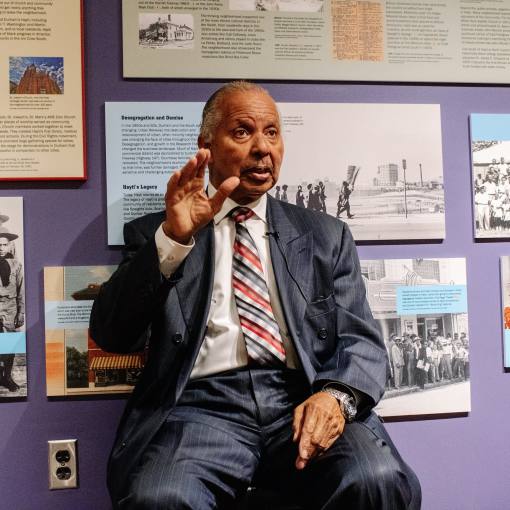
Black Stories of Durham’s Past & Present The history of Black people in Durham is a story of resilience and innovation, a legacy that has persevered into the 21st century. Learn More

About the African American Heritage Guide Welcome to Black Durham – where the past meets the present, and African American stories continue to unfold with grace, dignity, and pride. May this guide offer you moments of understanding, connection and celebration as you embark on this unforgettable exploration of African American heritage in the Bull City. Learn More
